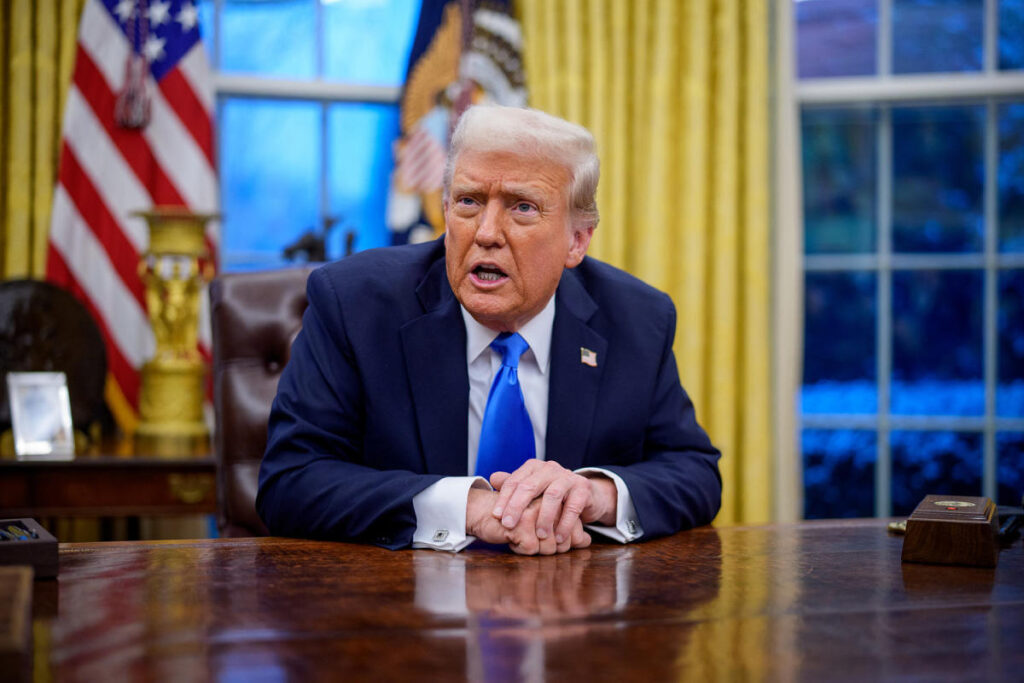Assorted Republican officials will, from time to time, try to assure the public that Donald Trump respects the rule of law and constitutional order in the United States. Sure, they argue, the president might often seem hostile toward democracy and legal restraints, but beneath the bluster is an American who cares about the foundations of the republic.
It would be far easier to believe Trump’s GOP defenders if he didn’t spend quite so much time implicitly telling the public how profoundly wrong they are.
The president’s overt hostility toward constitutional order comes to the fore with unsettling regularity. In December 2022, for example, it was Trump who issued a written statement musing about the “termination” of the Constitution in pursuit of his baseless election conspiracy theories. In January 2024, Trump similarly said presidents must be allowed to ignore laws that get in their way and take actions that “cross the line.” Around the same time, Trump repeatedly talked about his desire to establish a Day One “dictatorship,” which he said would give him temporary authority to pursue his priorities without checks and balances.
Over the weekend, as The New York Times reported, the Republican went even further down the same radical path.
President Trump on Saturday posted on social media a single sentence that appears to encapsulate his attitude as he tests the nation’s legal and constitutional boundaries in the process of upending the federal government and punishing his perceived enemies.
“He who saves his Country does not violate any Law,” Trump wrote to his social media platform on Saturday afternoon. Soon after, the president, who does not routinely use Elon Musk’s platform, published the identical message to the site formerly known as Twitter.
As the day progressed, the official White House social media account also amplified the message, and Trump pinned the missive to the top of his social media feed, seemingly as a way to demonstrate its significance.
For good measure, roughly 24 hours later, Trump promoted another online item, this time featuring a portrait of Napoleon Bonaparte with a quote sometimes attributed to him: “He who saves his country violates no law.”
Subtle, it was not.
On the contrary, as the Times’ Jamelle Bouie summarized, the Republican’s message was arguably “the single most un-American and anti-constitutional statement ever uttered by an American president.”
It’s difficult to disagree. The plain meaning of Trump’s statement — or more accurately, statements — is that presidents are incapable of committing crimes just so long as they believe they’re “saving” their countries. It is a sentiment embraced by tyrants for generations, each of whom have insisted that they cannot be expected to lead if bound by the limits of laws and legal institutions.
Indeed, every authoritarian system inevitably reaches a point at which a leader effectively declares that they are the law. That Trump thought to make a related declaration on Presidents’ Day weekend made it all the more striking.
There is always value in remembering the “watch what they do, not what they say” maxim. But under circumstances like these, it’s especially significant because what Trump is saying is reflected in what he is doing: This is, after all, the same president who’s overseeing a White House that too often appears indifferent to legal guardrails, and has even questioned the need to follow court rulings.
Complicating matters further are the broader implications of the “he who saves his country does not violate any law” message. As writer Kyle Clark noted, “As a journalist who covers extremism at the local level, I think it’s a mistake to view Trump’s Napoleonic statement as solely about presidential power. Consider if it’s interpreted as a wink and a nod for any extremist to act outside the law to ‘save’ the country as they see fit.”
I don’t imagine we’ve heard the last of this.
This article was originally published on MSNBC.com
Read the full article here
